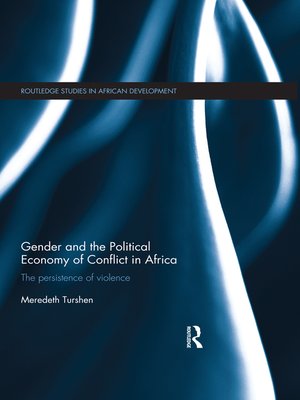Gender and the Political Economy of Conflict in Africa
ebook ∣ The persistence of violence · Routledge Studies in African Development
By Meredeth Turshen

Sign up to save your library
With an OverDrive account, you can save your favorite libraries for at-a-glance information about availability. Find out more about OverDrive accounts.
Find this title in Libby, the library reading app by OverDrive.



Search for a digital library with this title
Title found at these libraries:
| Library Name | Distance |
|---|---|
| Loading... |
Violence affects the economy of production and the ecology of reproduction— the production of economic goods and services and the generational reproduction of workers, the regeneration of the capacity to work and maintenance of workers on a daily basis, and the renewal of culture and society through community relations and the education of children
Gender and the Political Economy of Conflict in Africa explores the persistence of violence in conflict zones in Africa using a political economy framework. This framework employs an analysis of violence on both edges of the spectrum—a macro-economic analysis of violence against workers and a micro-political analysis of the violence in women's reproductive lives. These analyses come together to create a new explanation of why violence persists, a new political economy of violence against women, and a new theoretical understanding of the relation between production and reproduction. Three case studies are discussed: the Democratic Republic of the Congo (violence in an era of conflict), Sierra Leone (violence post-conflict), and Tanzania (which has not seen armed conflict on the mainland).
This book fills a significant gap on the political economy of war and women/gender for advanced undergraduate and postgraduate students as well as researchers in African Studies, Gender Studies, and Peace and Conflict Studies.







